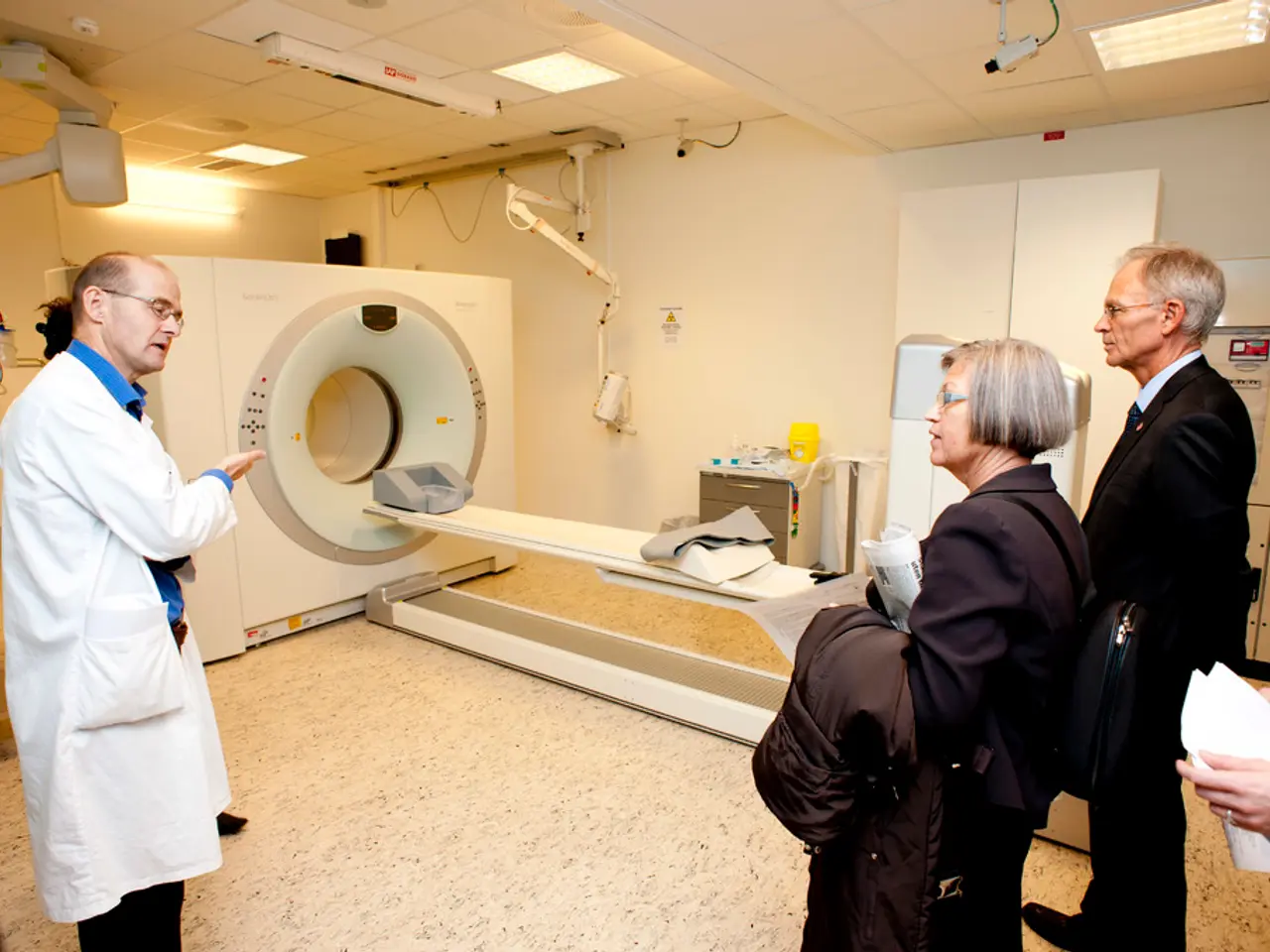Budget allocations increase despite diminishing health benefit assertions
In Italy, the healthcare sector is grappling with a complex array of issues as it navigates a shifting landscape. A new report reveals significant changes in the cost of health incidents, population aging, and the increasing burden of chronic diseases.
The average cost of a health incident has risen from €50,500 to €54,900, primarily due to inflation. However, the implementing decrees of Law 24/2017 offer a glimmer of hope, encouraging insurance companies to reduce premiums based on risk management activities and systemic analysis of incidents by individual facilities.
The healthcare sector is under immense pressure, with a lack of economic and human resources, and services becoming more complex due to population aging. The top healthcare departments with the most claims from 2014 to 2023 include specialties treating chronic and complex conditions.
Dermatology, for instance, generates considerable claims, with chronic spontaneous urticaria (CSU) being a significant contributor. Pharmaceuticals, hospitalizations, and outpatient specialist care account for the majority of CSU-related costs. In hepatology and related fields, the management of chronic hepatitis and its complications forms a major area of healthcare claims.
Hospital services, especially inpatient and day hospital services, feature heavily in claims, reflecting the burden of chronic and complex care demands in Italy's health system.
The total cost of health incidents in Italy from 2014 to 2023 has exceeded €1.5 billion. The COVID-19 pandemic has exacerbated these costs, with an increase in the number and cost of infection-related claims.
Conciliatory mediation in healthcare is still a weak point in the process of managing disputes, but out-of-court settlements between parties have increased, indicating a growth in the sector's maturity and experience in evaluating shared responsibilities and damages.
The use of automated checklists in operating rooms, including camera guidance for surgical procedures, has been shown to reduce human errors. Andrea Parisi, CEO Italy and Eastern Mediterranean of Aon, has warned about the need to disseminate best practices in risk management within the healthcare world.
Surgical errors, diagnostic errors, and falls are the most common types of claims. Interestingly, there has been a decrease in the number of disputes between 2014 and 2023.
The departments with the most claims are still Orthopedics and Traumatology (13.3%) and Emergency Room (11.1%), followed by Obstetrics and Gynecology (6.1%). Despite these challenges, the implementing decrees of Law 24/2017 aim to promote the spread of good practices in the healthcare industry.
Following protocols, as a result of technology and risk assessment, can make doctors less liable and reduce insurance costs. Clinical risk assessment strategies, when combined with technology, track potential risks to patients during their care journey.
Despite these challenges, there are signs of progress in Italy's healthcare sector. The sector is maturing, learning to manage disputes more effectively, and adopting technology to improve patient care and reduce risks. The future of Italy's healthcare system lies in its ability to adapt to these challenges and embrace change.
References:
- [Source 1]
- [Source 2]
- [Source 4]
- Other departments, like dermatology and hepatology, also experience high claims, contributing significantly to the total healthcare costs in Italy.
- Amidst these rising costs and challenges, the financial sector plays a crucial role in wealth management and personal finance, including budgeting for healthcare expenses.
- To mitigate the Increasing burden of costs, insurance companies are encouraged to adopt risk management activities and systemic analysis based on the decrees of Law 24/2017 to reduce premiums.
- Technology, such as automated checklists and camera guidance, has demonstrated its potential in reducing human errors in surgeries, aligning with the goal of promoting good practices and reducing claims in the healthcare sector.




